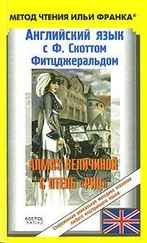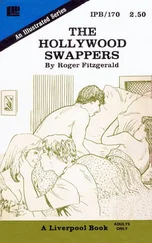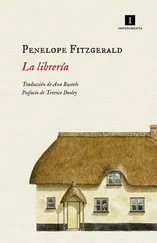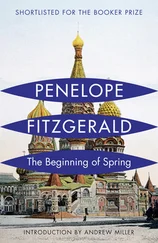He looked compassionately at Fred. ‘You’re hungry. But it’s of no use going down now, the Science Faculty will have eaten everything. The organic chemists will have cleared the sandwiches. Let me tell you what is going to happen, over the coming centuries, to atomic research.
‘There will be many apparent results, some useful, some spectacular, some, very possibly, unpleasant. But since the whole basis of the present research is unsound, cracks will appear in the structure one by one. The physicists will begin by constructing models of the atom, in fact there are some very nice ones in the Cavendish at the moment. Then they’ll find that the models won’t do, because they would only work if atoms really existed, so they’ll replace them by mathematical terms which can be stretched to fit. As a result, they’ll find that since they’re dealing with what they can’t observe, they can’t measure it, and so we shall hear that all that can be said is that the position is probably this and the energy is probably that. The energy will be beyond their comprehension, so they’ll be driven to the theory that it comes and goes more or less at random. Now their hypotheses will be at the beginning of collapse and they will have to pull out more and more bright notions to paper over the cracks and to cram into unsightly corners. There will be elementary particles which are too strange to have anything but curious names, and anti-matter which ought to be there, but isn’t. By the end of the century they will have to admit that the laws they are supposed to have discovered seem to act in a profoundly disorderly way. What is a disorderly law, Fairly?’
‘It sounds like chaos,’ said Fred.
‘The chaos will be in their minds only. It, too, will not be observable.’
‘What do you think is to be done?’
‘Admit the wrong direction, and go back to what can be known through the senses. If they don’t depend on true evidence, scientists are no better than gossips.’
Professor Flowerdew had, he said, been fortunate. The university during the last ten years or so had been surprisingly ready to create – by Grace, to use their own terms – posts, and even professorships, which would last only for as long as was thought necessary. There were, for instance, travelling bachelorships ‘for the encouragement of investigation into foreign countries’, established by the Special Board for Military Studies – scholarships in other words for spies. As a kind of counterweight some of the appointments had no apparent practical use whatsoever. Herbert Flowerdew had been offered a temporary Professorship in Observable Experimental Physics.
Fred was shocked by the word ‘fortunate’. He felt that luck and chance should have no place in science, and above all at the Cavendish.
‘The Cavendish is becoming very crowded,’ said Flowerdew. ‘There is a pot-house atmosphere. I have arranged to have a small laboratory of my own in the Department of Mechanical Philosophy.’ His own experiments were in the principles of equivalence and reciprocity. He couldn’t, then, be altogether cracked.
But was it, Fred broke out in distress, that he had no interest in the work of Wilson, and Rutherford, and Planck, and Niels Bohr, whose almost inaudible lectures Fred had also heard that year?
‘Not at all. I follow all that they printed with great interest, both through the German and the English journals. I am impressed with their results. I admire their great talents. But when I think of their future I hear the sadness of old men and those whom the gods have deserted.’
Flowerdew needed an assistant at £100 a year, which he would pay himself, to instruct his students in physics and take them off his hands generally. He could guarantee this assistant, too, a Junior Fellowship at St Angelicus. There was a vacancy in the college, not through death, but through a lecturer in Propellant Explosives being unexpectedly recalled to Germany. In explaining this Flowerdew made it quite clear that the Junior Fellow would also have to lend a hand with the library, the catering and the accounts, act as assistant organist, and keep the collection of fifteenth-century musical instruments in repair and, as far as possible, tuned. Here Fred jibbed.
‘I can’t do that. All I could ever do was to help out at home with the hymns. I’ve never even seen a fifteenth-century instrument.’
‘Let us forget them for the moment. Don’t answer me now. Think it over.’
By ‘don’t answer me now’ Flowerdew had meant, ‘don’t accept straight away because you’re a scholarship boy from a rectory with nothing to live on.’ Fred was struck by this, and by other things which the Professor was not doing. He was not, like the great ones of Cambridge, keeping a princely look-out for young followers. He wasn’t asking Fred to agree with him, either, about the unsoundness of atomic physics; not that. Clearly he was a lonely man, but he had made nothing of his loneliness, either. And there was a lack, not of self-confidence, but of self-assurance, in all this, that Fred liked. He was not vain himself, and only the humble can value humility. It appealed to him, too, that Flowerdew stood as one against many, not because he knew too little, but because he understood too much. ‘Stood’ was not the right word, though. He was no more likely to make a stand than Fred’s own father, gazing out of the window at the Rectory.
Without seeing Flowerdew again, Fred went home to the Rectory, where he was asked by the neighbours (called in to celebrate his First Class in physics) what he expected to do next, and, by the Rural Dean, whether he was going to blow them all up. Then Fred went with two of his friends for a walking holiday in Austria. For the first time in his life he felt he had no obligation to anyone. They went to the Salzburg Alps. At Bruckmann’s Hotel, by candlelight, the two waitresses and the daughter of the house appeared at the door of the three-bed commercial travellers’ room which they had taken for cheapness’ sake. Fred was the only one not asleep. The situation struck him as like a folk tale. He woke his two friends, and went down with the daughter, who had the keys, to fetch two bottles of wine from the dining-room. More she dare not take. When they got back upstairs the others were all sitting stiffly on the edge of the beds, not undressed, not even speaking, as though waiting for permission to begin. Fred found it hard not to laugh, then they all laughed. The wine was Grüner Weltliner, tasting violently of pepper. They blew out the candles and opened the shutters, to let the stars shine in. The room smelled of the just extinguished candlewicks, of the peppery wine, of strong young women’s flesh and of starch, because the maids had been doing the ironing.
Next morning they went on and up the mountain to the haymeadows, past the first rocky slopes where the wild raspberries were almost over, through ice-cold shadow into the sunlight of the upper slopes and almost to the edge of the glacier. They sat down, and the elder of Fred’s two friends, who was a chemical engineer, told them that he was going back to Bruckmann’s, as he had fallen in love with one of the waitresses. They had their valises with them. He picked up his, took his stick and walked away down the path, the stones slipping away beneath his boots. The remaining friend said that he was doing all he could to get to Manchester, in the hope of training with Rutherford. Fred must come too, everything of importance was happening in Manchester.
‘No, I’m going back to Cambridge. Herbert Flowerdew has offered me a post as his assistant.’
The friend burst into tears. He had been working far too hard and for too long. He regarded Fred as lost. ‘You never said anything about this before.’
‘I’ve only just decided to accept.’
Читать дальше












